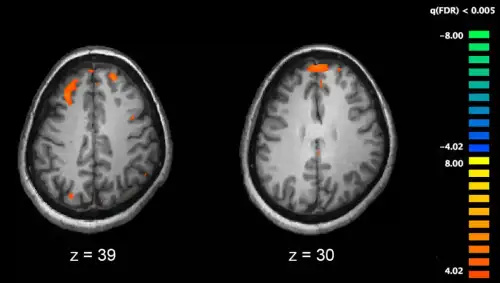
Celiac.com 12/13/2024 - The study investigates whether there is a causal relationship between autoimmune diseases and schizophrenia. Schizophrenia, a severe neuropsychiatric disorder, has been associated with immune system dysfunction in prior research. However, conflicting evidence has left the nature of this connection unclear. By using advanced genetic analysis, the researchers sought to determine whether autoimmune diseases and schizophrenia directly influence each other.
Why Study Schizophrenia and Autoimmune Diseases?
Schizophrenia is a complex disorder with genetic, environmental, and biological contributors. It affects approximately 1% of the global population and significantly reduces life expectancy. Autoimmune diseases, where the immune system mistakenly attacks the body, have also been linked to schizophrenia in observational studies. However, these links could be due to overlapping genetic or environmental factors rather than direct causation. Understanding these connections could pave the way for improved prevention and treatment strategies for both conditions.
Study Design: Using Genetics to Uncover Causality
Celiac.com Sponsor (A12):
This research used Mendelian randomization, a statistical method that analyzes genetic data to infer causality between factors. By examining genetic variations associated with both schizophrenia and 10 common autoimmune diseases, the study aimed to identify whether there are direct effects between the two. These diseases included conditions like celiac disease, lupus, type 1 diabetes, and psoriasis, among others.
The bidirectional nature of the analysis meant that researchers looked at whether autoimmune diseases influenced schizophrenia and vice versa. A variety of statistical approaches were used to ensure robust results and account for confounding factors.
Key Findings
The study found distinct patterns in how schizophrenia and autoimmune diseases are linked:
-
Autoimmune Diseases Increasing Schizophrenia Risk:
Ankylosing Spondylitis: Genetic predisposition to this inflammatory arthritis was associated with a higher risk of developing schizophrenia. -
Autoimmune Diseases Decreasing Schizophrenia Risk:
Celiac Disease, Type 1 Diabetes, and Lupus: Genetic markers for these conditions were linked to a lower risk of schizophrenia, challenging prior studies that suggested an increased risk. -
Schizophrenia Increasing Autoimmune Disease Risk:
Schizophrenia was found to heighten the risk of certain autoimmune diseases, including inflammatory bowel disease (encompassing Crohn’s disease and ulcerative colitis) and psoriasis. -
No Causal Link Identified:
Multiple sclerosis and rheumatoid arthritis showed no causal relationship with schizophrenia in either direction.
Exploring Biological Mechanisms
The study delved into why these links might exist. Several immune-related factors could explain the relationship:
- Immune Dysregulation: Schizophrenia and autoimmune diseases share immune system irregularities, such as imbalances in certain immune cells and altered cytokine levels.
- Genetic Overlap: Some genetic regions associated with schizophrenia also contribute to autoimmune diseases, suggesting shared pathways in their development.
- Inflammatory Triggers: Chronic inflammation and infections might simultaneously predispose individuals to both schizophrenia and autoimmune diseases.
- Antibodies and Neural Impact: In conditions like celiac disease, antibodies produced in response to gluten have been implicated in psychiatric symptoms, possibly linking immune responses to brain function.
Study Strengths and Limitations
This study was the first to use a large-scale genetic approach to comprehensively assess the relationship between schizophrenia and autoimmune diseases. By relying on genetic data, it avoided biases often present in observational studies. Sensitivity analyses further validated the results.
However, the study had limitations:
- The genetic data came exclusively from individuals of European ancestry, so findings may not apply to other populations.
- It only included 10 autoimmune diseases, leaving the potential for overlooked associations with other conditions.
- Nonlinear relationships and environmental factors, such as stress or diet, were not accounted for.
Implications for Those With Celiac Disease
One of the most significant findings for individuals with celiac disease is the evidence suggesting a protective effect against schizophrenia. This aligns with earlier studies that found improvements in psychiatric symptoms for some schizophrenia patients who adopted a gluten-free diet. Although more research is needed, this connection underscores the potential importance of nutrition and immune health in managing mental health conditions.
Why This Matters
Understanding the links between autoimmune diseases and schizophrenia is crucial for advancing medical care. This research provides evidence of specific causal relationships, shedding light on potential shared biological mechanisms. For individuals with celiac disease, it offers reassurance that their condition may not increase—and could even reduce—their risk of schizophrenia. More broadly, the findings could inspire new treatment strategies that address the immune system to improve outcomes for those with schizophrenia.
Read more at: bmcpsychiatry.biomedcentral.com








Recommended Comments
There are no comments to display.
Create an account or sign in to comment
You need to be a member in order to leave a comment
Create an account
Sign up for a new account in our community. It's easy!
Register a new accountSign in
Already have an account? Sign in here.
Sign In Now